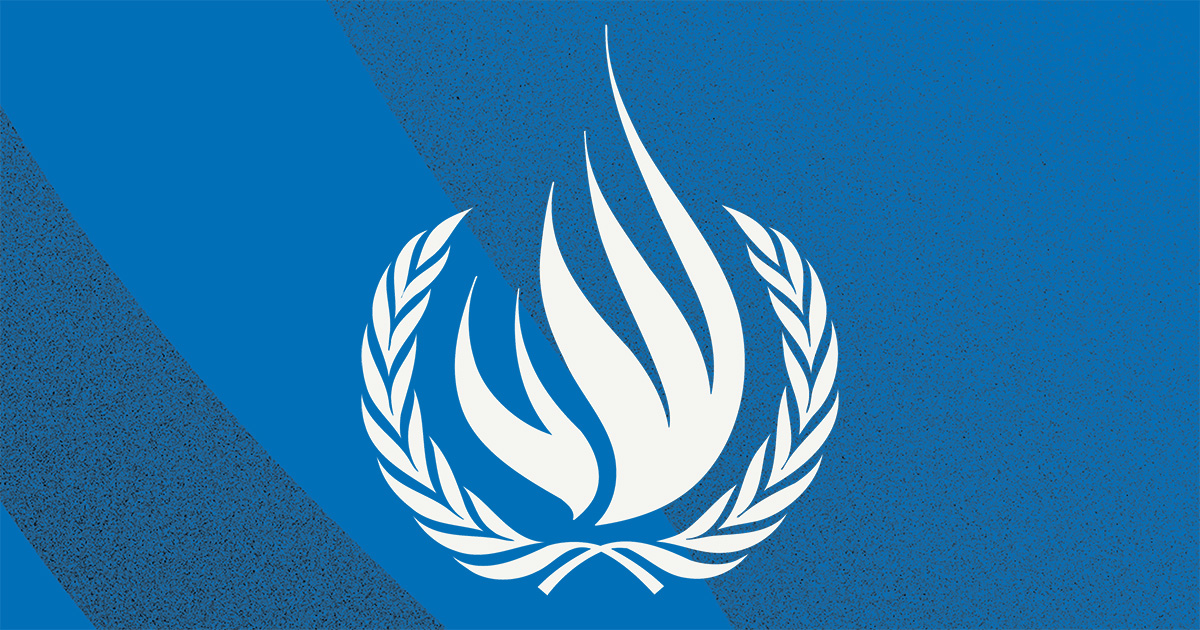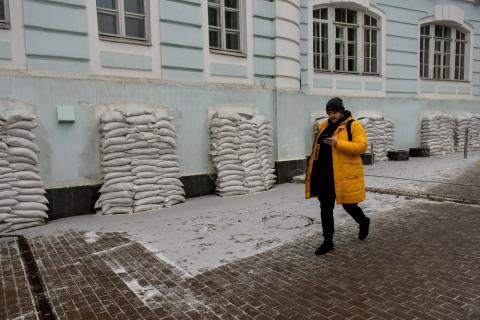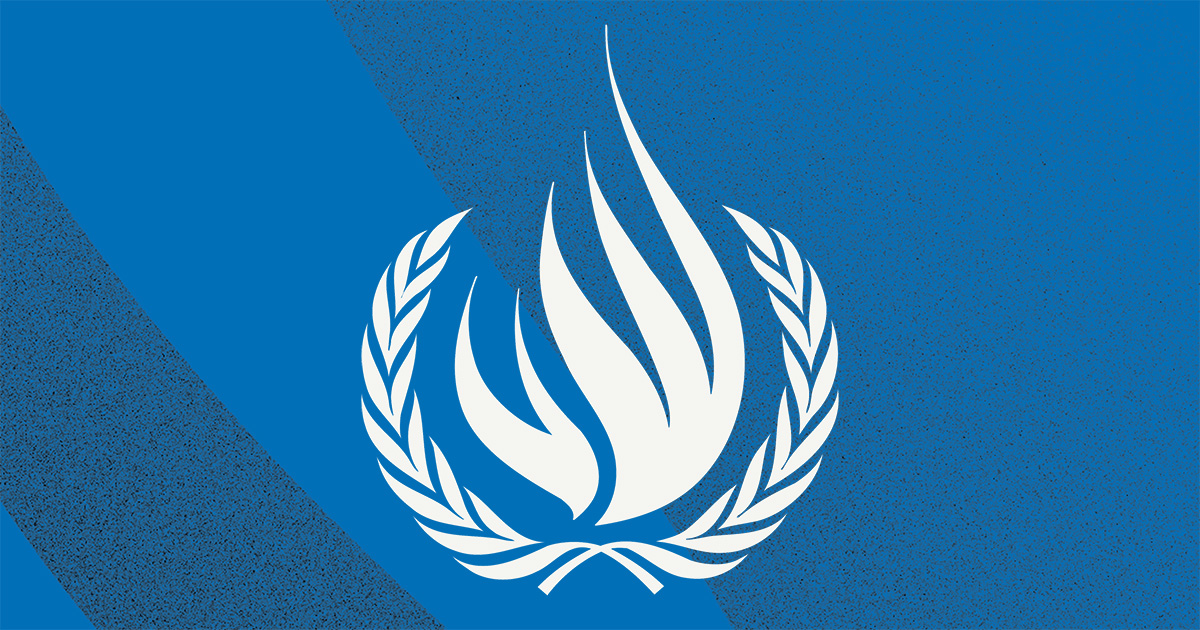
Since the war in Ukraine began on 24 February, UN Human Rights in Moldova have played an integral part in monitoring the country’s borders and mobilizing support for refugees entering the country.
It is estimated that in the period 24 February – 15 April, 421,130 refugees have fled to Moldova and 101,331 of them have made the decision to stay, according to Bea Ferenci, UN Human Rights Adviser in Moldova.
About an additional 8,000 refugees who have decided to stay are in the Transnistria region, located between the Nistru River and the Moldovan–Ukrainian border, a region in a protracted conflict. Providing support to refugees in the region has its own challenges and is still lagging.
The number of refugees entering is large for Moldova because it is a poor and small country with a resident population of only 2.59 million people, Ferenci explained.
“We’ve had the largest influx of refugees in terms of per capita figure of all the countries receiving refugees,” she said.
At the center of the crisis
Ferenci said when her team provided immediate support at the border for the first time, 30 kilometers of cars had assembled in a line, and hundreds of people, which were mainly women, children, and older people, were waiting to cross. In the beginning of the conflict, about 15,000 people were passing the border crossing points daily.
From the start, they oversaw the monitoring of the situation by observing, speaking to people, and identifying the services needed to protect and support them such as access to information, shelter, health services, food, clothing, education, translation, and legal assistance.
Additionally, they monitored the situation in the Refugee Accommodation Centers (RACs) to understand what the needs in those were and to understand how prepared they were to accommodate people from different vulnerable groups, such as persons with disabilities, Roma, and families with small children.
Some of the concerns Ferenci and her team identified were issues of discrimination towards Roma, potential trafficking of people, potential sexual exploitation, issues with documentation, and lack of accessibility of transport, transit centers and shelters for persons with physical disabilities. She also added that in the beginning there were issues around people standing in line for hours in the cold without warm clothes or blankets and any infrastructure in place for sanitation, food, and services.
“Right from the beginning of the refugee influx there was a great mobilization from the community to support refugees,” she said. “Most of the support was based on volunteers, so it was really just Moldovans going there with food carts, clothes, offering transport, accommodation and more. The State certainly appreciated this mobilization, as they were setting up required infrastructure.”
While State shelters have been set up to house refugees, Ferenci said people have been opening their homes.
“It’s been incredible,” she said.
“People are just going to border crossing points and picking up refugees. They are even going to shelters to pick up families to take them to their homes. The response is impressive.”
Ferenci said about 80 per cent of those who are here are hosted by families and many of them are not related to each other. Given the economic difficulties in Moldova, Ferenci added that cash programs have been created to support families who are providing shelter to refugees as well as refugees.
“There is an understanding and feeling of empathy for Ukrainian refugees,” she said. “There is also a great fear that this will end up having an impact on Moldova.”
Identifying and supporting vulnerable groups most at risk
Almost 90 per cent of the total number of refugees are women with children – this being one of the most vulnerable group of people being exposed to different risks including sexual exploitation and trafficking.
The Roma minority group is also a vulnerable group facing many obstacles like racial discrimination, bias-based exclusion, and stigmatization.
“Roma could be in danger of being left behind,” said Elena Cuijuclu, Senior Minority Fellow at UN Human Rights Moldova. “It is one of the greatest concerns raised by human rights defenders, civil society organizations, and UN human rights mechanisms.”
This is why UN Human Rights have assisted Roma civil society organizations to develop a project on providing humanitarian support to Roma refugees in in Moldova, including the Transnistria region, with financial support of Swiss Development Cooperation. Roma need more access to education and other basic services like medication and food, as well providing legal counselling in documentation for children and adults, Cuijuclu said.
Children with disabilities and their families require assistance and support in adapting to unknown environments. While visiting shelters in different parts of Moldova, Tatiana Cernomorit, National Human Rights Officer at UN Human Rights Moldova, found that children with disabilities, such as children with autism spectrum disorder do better in smaller shelters.
Cernomorit also said children with disabilities will require support and assistance in inclusion in schools. She stressed the need for more training for teachers on how to better support their inclusion and work in the classroom with refugee children, including children with disabilities.
She also said the infrastructural accessibility of the RACs should be ensured for people with disabilities such as, sanitary groups, rooms that are adapted to the needs of persons with disabilities. Also, informational accessibility (informative materials and on-line platform) should be ensured, such as sign language interpretation and easy to read formats, so they can also receive important information about their rights and services.
“We also need awareness raising because people with psychosocial and intellectual disabilities are among the groups of people with disabilities that are less accepted in our society,” she said.
The Government now has the infrastructure in place to support incoming refugees and is working with the UN to create protection action plans. For instance, a protection working group has been created to address the risk and concerns for vulnerable groups and because of the advocacy work performed by UN Human Rights, taskforces on refugees with disabilities and Roma were created. There are currently 16 UN agencies, and several INGOs and NGOs working in Moldova to assist.
Since other UN entities and INGOs that have arrived in Moldova are now handling the intake of refugees, Ferenci said UN Human Rights have shifted its focus to the people who have decided to stay in the country, especially vulnerable groups, and identify the services they need for the long term. Now that people will be staying for longer, more issues will arise, and these issues will need to be addressed such as tackling misinformation, hate speech, social cohesion and assisting people with longer term concerns including with mental health.
“People with mental health issues will need to have regular access to mental health support and medication, so they will need a family doctor,” Ferenci said. “This is the phase we are in now. Every refugee has his or her own story and their own concerns.”









